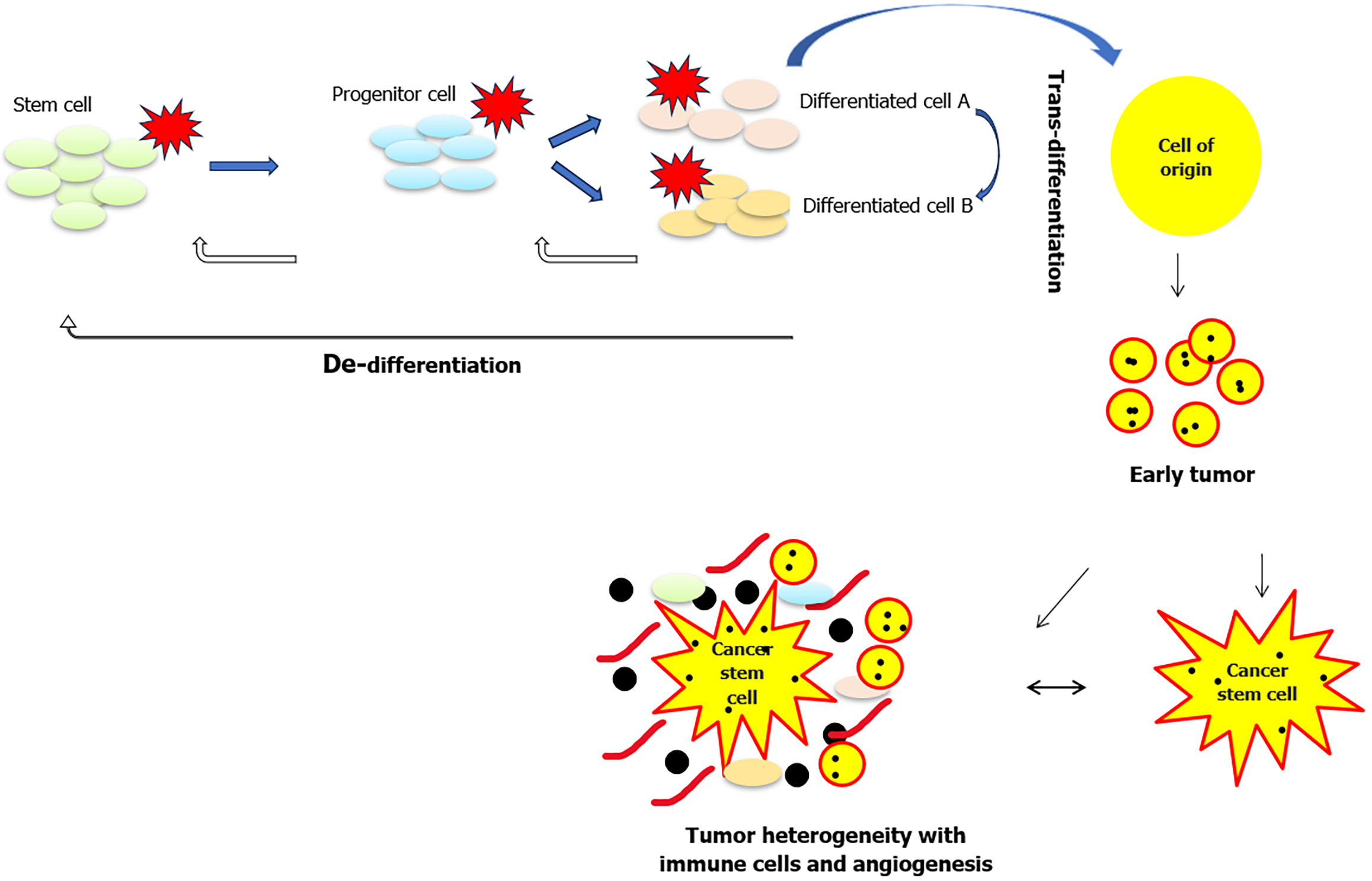Copyright
©The Author(s) 2025.
World J Clin Oncol. Aug 24, 2025; 16(8): 106838
Published online Aug 24, 2025. doi: 10.5306/wjco.v16.i8.106838
Published online Aug 24, 2025. doi: 10.5306/wjco.v16.i8.106838
Figure 1 This schematic highlights the dynamic plasticity of cancer cells and their ability to reprogram, contributing to tumor progression and therapy resistance.
Cancer initiation begins with a cell of origin, which is the first cell in a tissue to acquire a cancer-initiating driver mutation. This cell can be a normal native stem cell, a common/committed progenitor, or a fully differentiated cell. Driver mutations (indicated by red starbursts) can occur at any stage of cell differentiation, leading to malignant transformation. The result is a heterogenous tumor consisting of cell of origin, cancer stem cells, blood vessels, immune cells. De-differentiation refers to the reprogramming of a specialized cell into a less specialized state, reverting to a progenitor or stem-like phenotype within the same lineage. Trans-differentiation occurs when a differentiated cell reprograms into another differentiated cell type, potentially from a different lineage, as observed in treatment-induced neuroendocrine prostate cancer.
- Citation: Shenoy S. Cell reprogramming in cancer: Interplay of genetic, epigenetic mechanisms, and the tumor microenvironment in carcinogenesis and metastasis. World J Clin Oncol 2025; 16(8): 106838
- URL: https://www.wjgnet.com/2218-4333/full/v16/i8/106838.htm
- DOI: https://dx.doi.org/10.5306/wjco.v16.i8.106838









